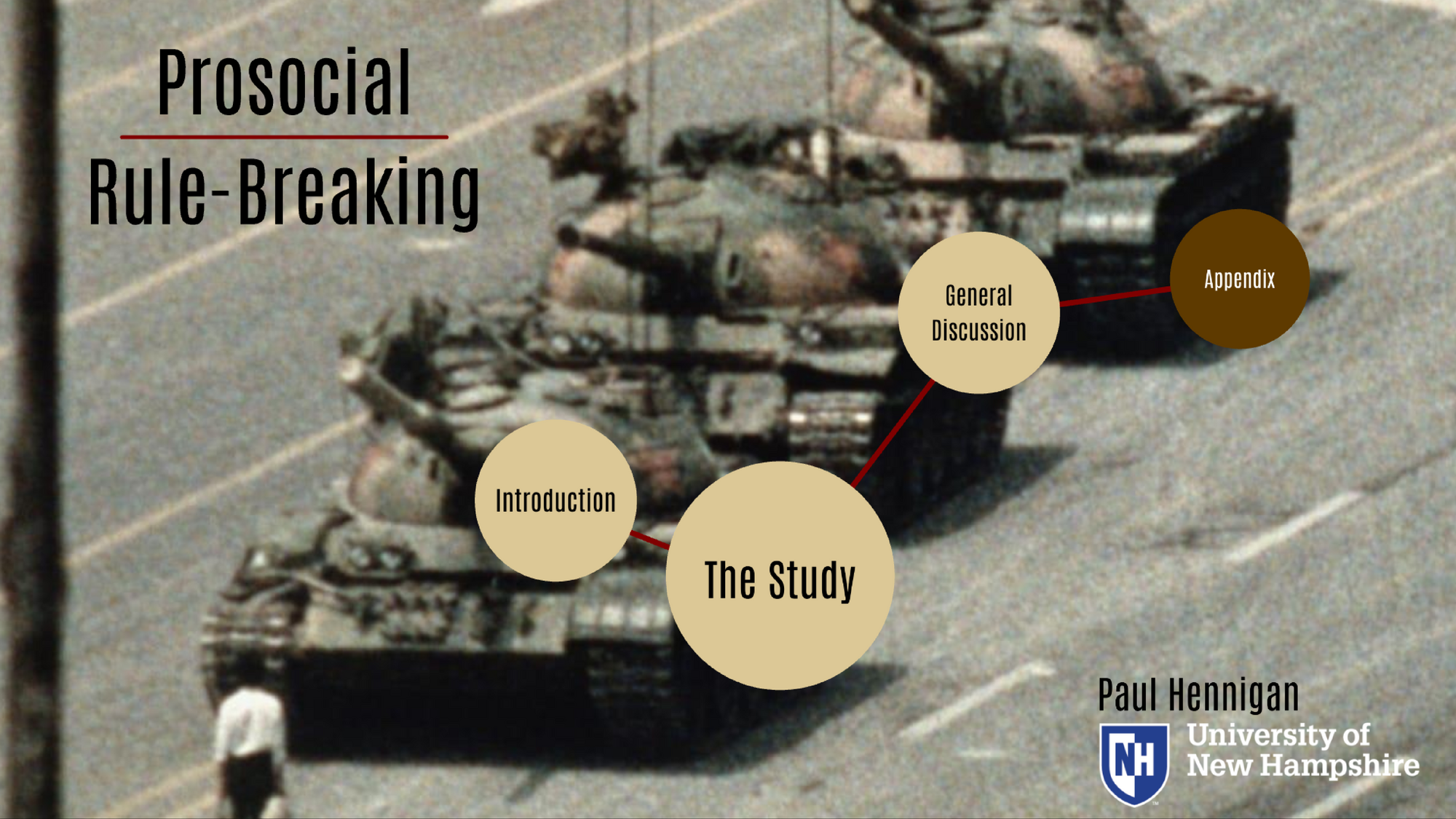Title:
Breaking Rules for Moral Reasons: Detecting Differences between Prosocial and Antisocial Rule Breaking Using a Behavioral Cheating Task
Slideshow Presentation
Best viewed by downloading
Preview Converted Images may contain errors

Abstract
Legal and psychological scholars generally assume that rule breaking is an antisocial behavior that must be curtailed. However, there are many historical cases where society praises the moral fortitude of prosocial rule-breakers who defy unjust laws to help others. In an experimental study designed to detect differences between antisocial and prosocial rule breaking, 144 participants completed measures of several moral traits after being given an easy opportunity to cheat on a difficult math test. They were told that for every answer they got correct, they would win one raffle ticket for a 200 dollar prize. In the antisocial condition, they were told they would be able to keep these tickets. In the prosocial condition, they were instead told that these raffle tickets would be donated to a struggling cancer charity. Results indicate that there is a difference between the prosocial and antisocial conditions in how moral identity, empathy, and guilt-proneness predict rule breaking. These moral traits more positively predicted prosocial rule breaking compared to antisocial rule breaking where they were more negatively associated. Both guilt-proneness and moral identity were directly and negatively associated with antisocial rule breaking. Conversely, guilt-proneness was directly and positively related to prosocial rule breaking. These results may be the first of many that challenge the field's previous understanding of rule breaking as a strictly antisocial behavior.
Authors
| First Name |
Last Name |
|
Paul
|
Hennigan
|
Leave a comment
Submission Details
Conference GRC
Event Graduate Research Conference
Department Psychology (GRC)
Group Oral Presentation
Added April 17, 2020, 11:36 p.m.
Updated April 17, 2020, 11:47 p.m.
See More Department Presentations Here